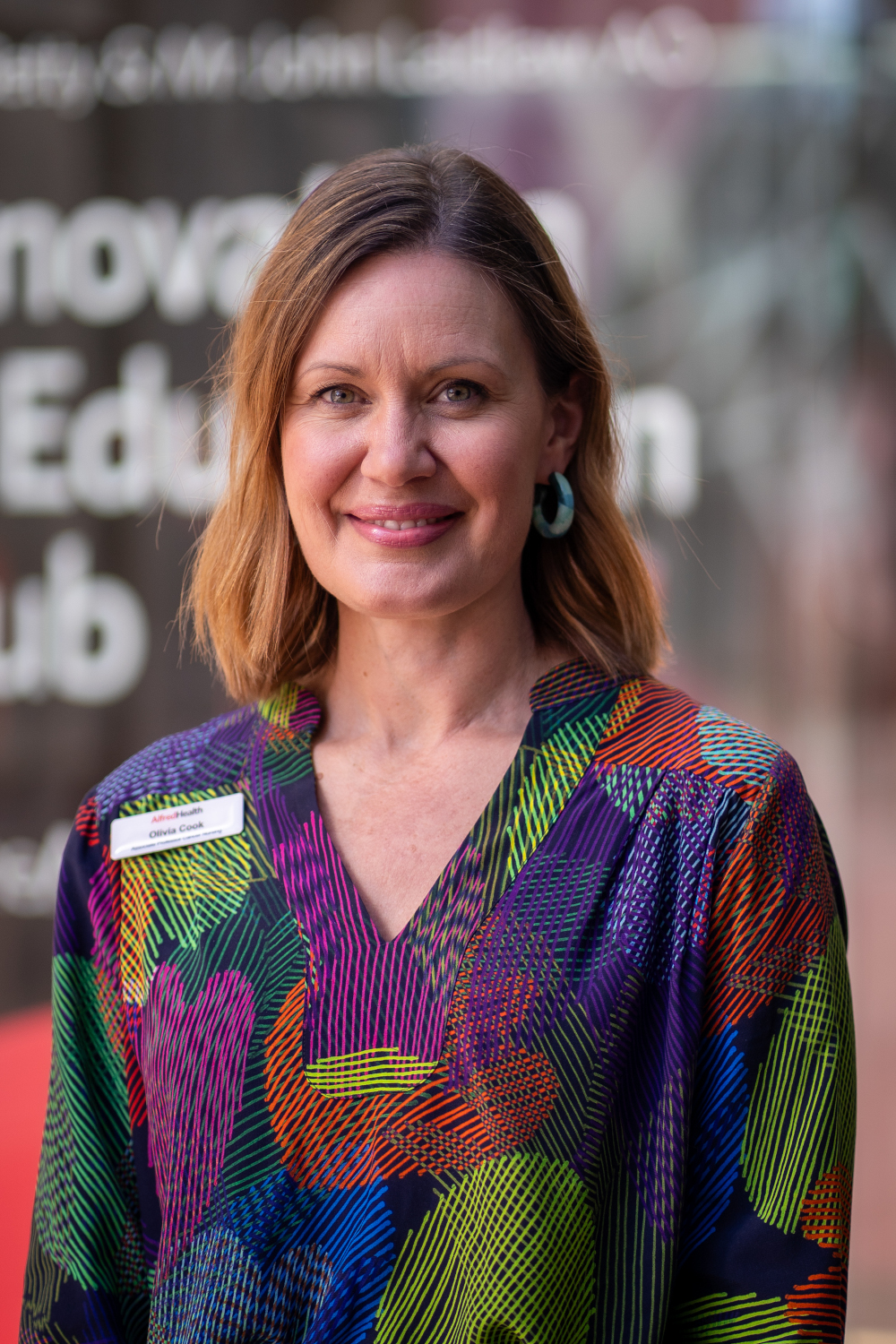Meet Professor of Nursing, Cancer Services, A/Prof Olivia Cook
Being diagnosed and treated for cancer is one of the most emotional experiences anyone can go through.
And no one knows this better than Alfred Health/Monash University’s inaugural Professor of Nursing, Cancer Services, Associate Professor Olivia Cook.
This is a first-of-its-kind role established at Alfred Health in conjunction with Monash University. The nursing professor's role is crucial for shaping the future of healthcare by educating and mentoring the next generation of nurses, advancing the profession through research, and contributing to the improvement of patient care and nursing practices.
Olivia is a registered nurse, educator, and researcher with more than 20 years of experience in the fields of cancer nursing and women’s health.
Olivia’s research is focused on cancer care and the cancer nursing workforce, with the ultimate aim of improving the experience and outcomes of people experiencing cancer.
As Professor of Nursing, Olivia will bridge the gap between academic theory and real-world healthcare.
Her passion for cancer nursing was forever cemented after watching her father’s long battle with cancer. A young adolescent, when her dad was first diagnosed, Olivia says his diagnosis at just age 38 is the reason she was set on a career in nursing.
“He had a rare cancer and was diagnosed and first treated at The Alfred. This lived experience of cancer is the number one reason for what motivates me and my cancer nursing career,” she said.
Olivia started her cancer nursing career at Epworth Freemasons Hospital, where she became Nurse Unit Manager of the gynaecology/gynae-oncology ward. She advocated for and supported their Clinical Nurse Consultant (CNC) role in gynaecological cancers.
She saw the vital need for specialised and close care during and after treatment for these sensitive cancers in women.
“There was such an inequity in specialist cancer nurse care; breast cancer and prostate cancer, for example, had CNC roles. I’m a big advocate for clinical nurse consultants across all types of cancers,” she said.
Research shows that CNC involvement in cancer care can lead to fewer ED presentations, improved symptom and side effect management, and improved overall quality of life and experience.
Most recently, Olivia was the Head of Nurse Education and Research at the McGrath Foundation, supporting the 300+ McGrath Cancer Care Nurses located across Australia. In this role, she was a key leader in the expansion of the McGrath Foundation as a provider of breast cancer nursing services to a provider of nursing services across all cancer types.
Her drive to provide high-level patient care that is based on evidence led her to complete a Doctor of Philosophy (PhD) in 2018 from Monash University.
“As nurses, we always want to improve and adapt our care, but, through this role, I want to embed in our nurses that this needs to be based on measuring and evaluating our care, and this is where research comes in,” she said.
“Cancer rates aren’t improving. In Australia, it's estimated that approximately 1 in 2 people will be diagnosed with cancer by the age of 85. And the increase in young people diagnosed with cancer is also concerning. Nurses and nurse-led research have never been more critical,” Olivia added.
As for the next generation of nurses she will help lead and inspire, her advice is to identify your spark, find your reason, and follow your passion.
From student and graduate to research nurse and Professor of Nursing, the Alfred Research Alliance provides nurses with a career pathway in patient care, research, education and teaching, and policy.

